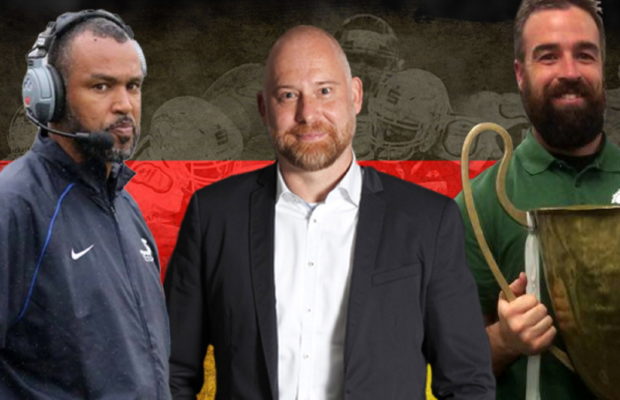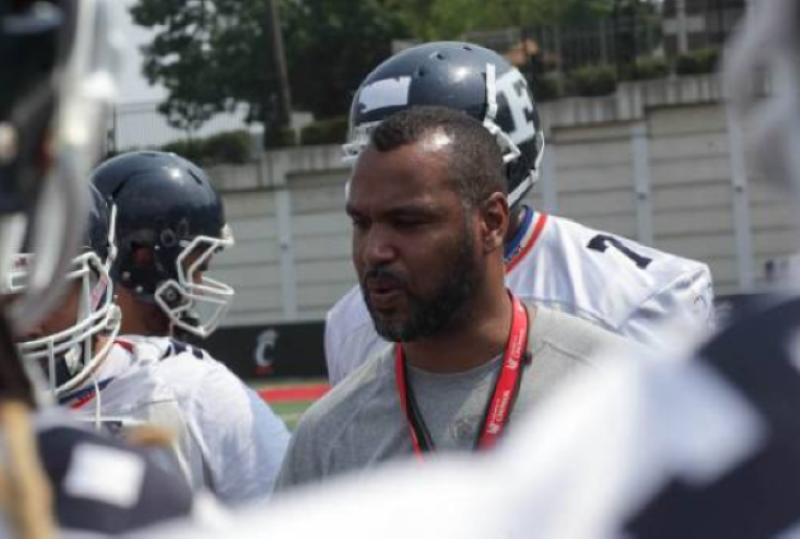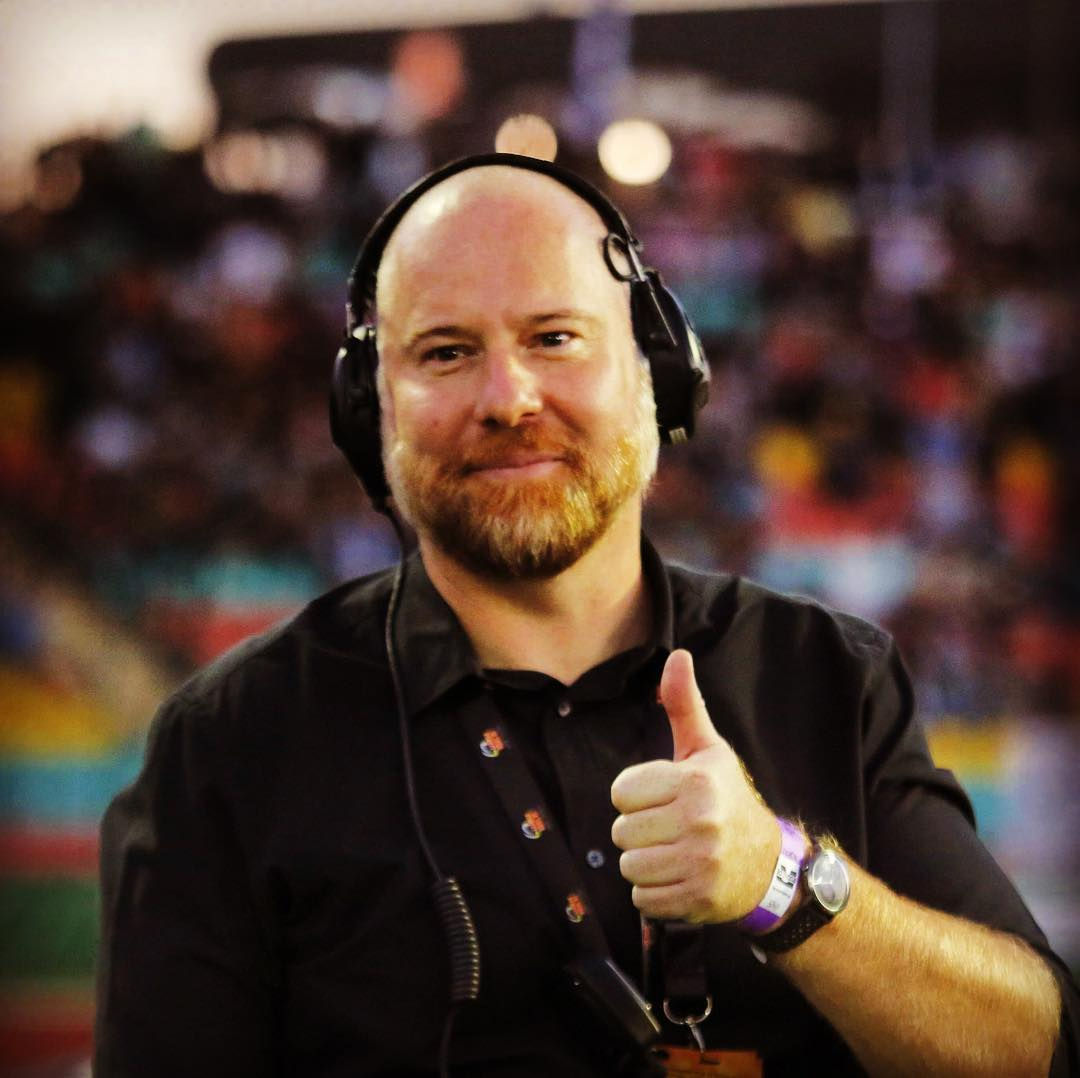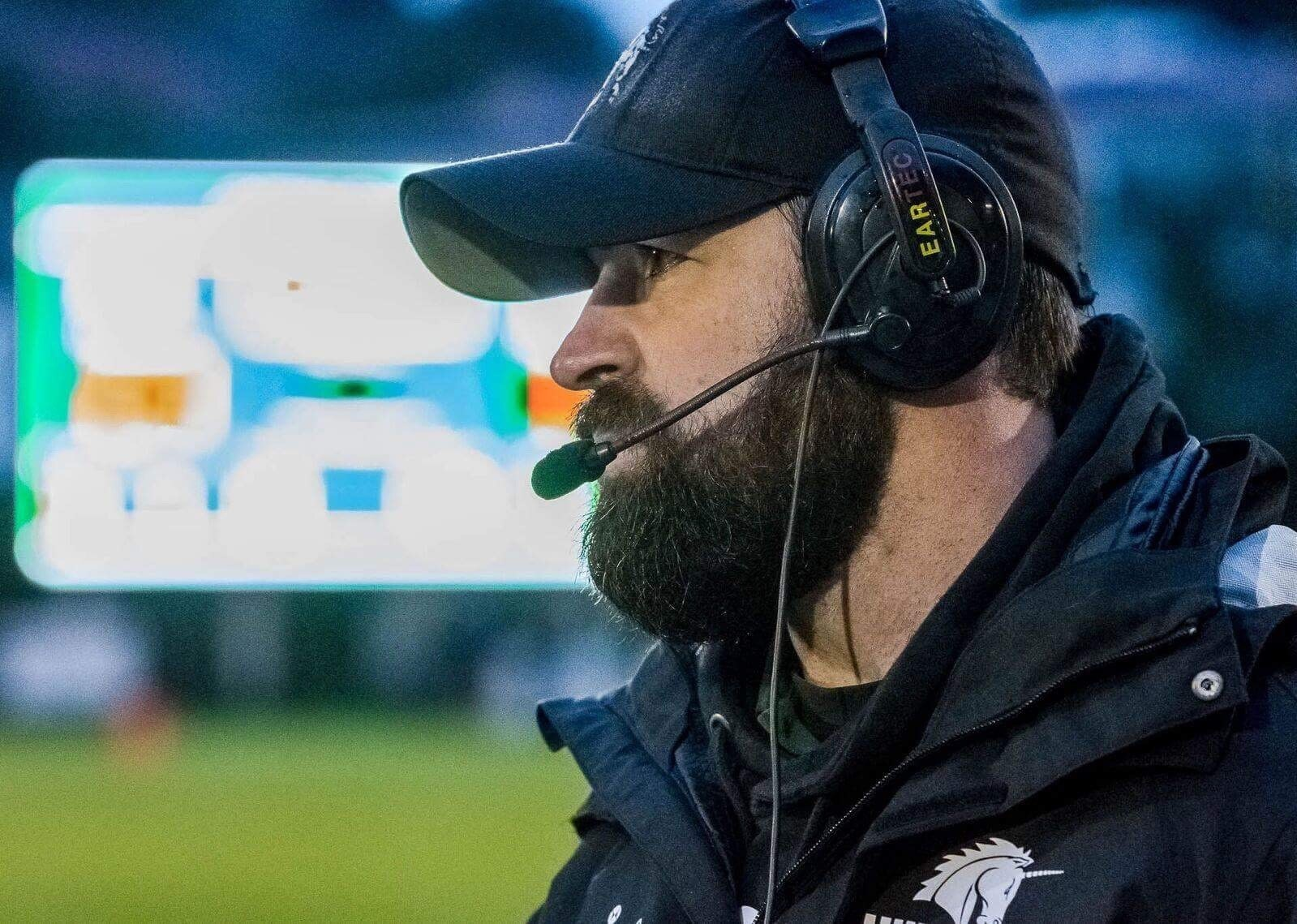A nation divided: Germany’s football leaders react to the European League of Football

The eyes of the international football world are fixed on a divided nation.
No, we’re not talking about the United States.
As the world’s superpower finished up at the polls last week, a massive shift was occurring in one of its major sporting exports all the way across the world in Germany. There, a group of football pioneers announced an ambitious project, the European League of Football, billed as the first attempt at professional style football on the continent since NFL Europe pulled up stakes in 2007. In so doing, the new league has put itself squarely at odds with the German Football League and the sport’s existing power structure. This schism is unlikely to make an appearance on CNN, but for the future of American football in Europe, it could be monumental.
“If there was a well-functioning system in place then there wouldn’t be a need for something new,” says the new league’s co-founder and commissioner Patrick Esume. “If you go across Germany and talk to the people and teams, it seems like 90% of people haven’t been happy with the way things have been going for the last 15 years. Something needed to change.”
That change is what Esume calls “professionalized” football. In many ways the ELF will resemble existing semi-pro football leagues all over Europe, with teams made up of largely local players and only a handful of imports or paid players allowed. What differs is the organizational structure. While GFL teams pay into their league through licensing fees, the ELF will have a dedicated league office to bankroll teams and funnel money back into their franchises. It’s a model used by most professional leagues, but many are skeptical that it could function with the current state of football in Europe. Chief among the critics is Carsten Dalkowski, Chairman of the German Football League, whose organization responded to the ELF’s announcement with a scathing public rebuttal.
“Everybody can do what they want. It’s not like we have the right to tell them not to try it,” Dalkowski explains. “The only thing we are saying is we have experience over the last forty years in running leagues in Germany and in Europe and we have a pretty good insight into what the teams are capable of.”
The two leagues are philosophically at odds, with the ELF arising out of the existing political tensions within German football. Its proponents see a sport with rising popularity that has been stagnant at the amateur level for years, with money and resources pooled at the top to fund the salaries of German federation leadership while things like marketing and national teams were left by the wayside.
“It’s almost a slap in the face to all the people who endured the last twenty years,” Esume says of the public criticism leveled at his league. “If you played in the GFL, you had to pay a license fee and a fee for GFL TV. That’s 15,000 euros and you don’t get anything. That’s just to be allowed to participate. Then you have to pay your own referees, that’s another ten grand. That’s 25,000 euros and you didn’t get anything.”
As the country’s leading football TV analyst, Esume knows first hand how much interest there is for the game in Germany. NFL broadcasts draw massive ratings and more than two million people tune into the Super Bowl, even though it’s often played at 3 a.m. local time. Recently, college football has joined the broadcast landscape and games have at times reached upwards of 400,000 viewers despite little knowledge nationally in regards to the teams playing. It’s a football fervor that Esume believes the GFL has failed to capitalize on, offering primarily livestream options with little media reach.
“Just imagine there is a league on the same channel as the NFL, or on another big free TV channel, and people can see the league presented just the way the NFL is presented to them,” Esume muses. “Multiple camera angles, nice stadiums, people in one stand so it looks crowded. Fans can see on the field with steady cams and sideline cams. You get full access into the game and you can actually go there, touch it, feel it and talk to the players who are starting to be superstars.”
That’s what the ELF is aiming to do in order to correct the lack of exposure for the national game. GFL leadership insists it has also made strides in the media landscape, plans for a televised game of the week were even in the works before the coronavirus forced a canceled season, but Carsten Dalkowski says they know from experience that NFL interest rarely translates into passion for local football.
“They think because the NFL has a pretty good crowd on TV that that crowd is automatically going to watch games Saturday and Sunday out in the stadiums. That has not been the case the last couple of years and we’ve found out that it is not the same fan structure,” he says shaking his head. “We don’t think just because you like the NFL that you are going to like the GFL or the ELF. It’s different football. It’s not professional.”
That hasn’t stopped several GFL teams from jumping on board with the new league. When the ELF kicks off in June, they plan to have eight franchises with seven in Germany and one, the Wroclaw Panthers, in Poland. Only six of those German cities are accounted for thus far: Hamburg, Berlin, Frankfurt, Stuttgart, Hildesheim/Hannover, and Ingolstadt. The plan is to expand to as many as 20 teams in ten countries in the next few years, but Dalkowski says the franchises that are missing from the ELF are the most telling.
“There is a reason why New Yorker or Schwabisch Hall Unicorns or Dresden or Cologne, all these teams that went to the quarter-finals and semi-finals the last couple of years, aren’t with them,” he says.
Jordan Neuman, head coach of Schwabisch Hall, agrees with that assessment. He’s a fierce advocate for his club and believes their cautious approach to growth has led them to long-term stability and success, something other clubs might be jeopardizing in jumping to the new league.
“I know the slow, step-by-step process that our board has gone through to take these incremental steps forward and be patient. We’ve never been an organization that saw something and tried to make this big jump for the next year,” he explains. “We’ve been so disciplined, and we’ve walked this slow and sometimes painful walk to the top. I’m passionate about that and not willing to see it disappear because a new league pops up.”
Dalkowski also worries that over-eager clubs could put all their eggs in one basket by joining in on what he dubs a “high risk maneuver”, costing German football well-established teams and setting the sport back nationally.
“They tell us that they need to have at least half a million euros by themselves because they have to equalize the spending by the teams,” Dalkowski says of the finances behind the new league. “If they have that money, that’s fine with me. The fear is that they don’t have it and a lot of coaches and players are falling for this and will end up without a team. Then we’ve wasted another year.”
Esume dismisses those claims outright. His fellow shareholder SEH Sports and Entertainment Holdings, led by the former managing director of ProSiebenSat.1 and Sport1, Zeljko Karajica, has deep pockets and will allow teams to stop their current overreliance on singular wealthy sponsors that he says could cripple clubs if they ever pulled out. Esume wonders openly how any team could collapse under a league structure that actively reduces their expenses.
“We are trying to help the homegrown European game finally have a solid foundation from a business standpoint,” he says. “To have a salary cap so they can’t go overboard. To give them a chance to make more money, to create more opportunities for sponsorship by giving them a bigger stage. That’s what every federation should aim for.”
While Esume insists any surplus revenue from this type of league structure can be injected back into the development of the sport more efficiently than in the GFL’s federation reliant model, his critics believe that the ELF has little interest in growing the game.
“You don’t just have rights, you also have obligations as a club to the sport. It looks like they are only interested in their rights,” Dalkowski suggests. “They don’t want to have youth programs, they don’t want to invest in coaching or in the development of players, they just want to play. That’s a professional format and I understand that, but it doesn’t look like they are actually going to be professional.”
Both sides know that there will now be competition for players and resources within the German market, a challenge that could spread elsewhere if the league grows across the continent. Coach Neuman worries that the internal divisions could undo progress already made.
“It was disappointing for German football just in the sense that you don’t ever want to see things get split,” he says “I think the German Football League has become the best league in Europe over the last five years or so. It’s become the most competitive league. It probably hasn’t grown as fast as some people would like but I do think there is a lot of good things about the league and I don’t want to see that get split.”
Even as defectors to the ELF have decried a lack of progress by Germany’s top league, the GFL has been taking steps to address the exact problems that Esume is seeking to fix on his own terms. Neuman points to a new league board of directors, mere months old, that is focused on improving marketing, fan attendance and television exposure as a reason to be excited.
“The GFL has given the Unicorns Organization and many others a platform to compete at the highest level in Europe in American football for many years now and instead of abandoning this model, we want to improve upon it,” he explains.
Dalkowski is also optimistic for the future and stresses that while progress happens every year, the GFL simply doesn’t have the luxury of making big swings.
“The GFL is trying to be more professional every year but we cannot take the big steps that they want to take because we cannot risk the structure of the clubs, the youth teams and the association we are financing with our license fees,” he emphasizes.
For Esume, that rhetoric is simply too little, too late. While some might be turned off by the ongoing uncertainty of the COVID-19 pandemic, he believes the time is right for football to claim its rightful place in the market.
“I know people before us have had the same idea but we have a window of opportunity because football is so hot right now in Germany, the media is really interested in our game and teams are frustrated,” he says.
Even as some accuse him of irresponsibly gambling with the future of German football, Esume insists he isn’t looking to unseat existing power structures. He is simply trying to fill a gaping hole in the European football market and that works best if everyone works together.
“At the end of the day, it’s the survival of the fittest. That’s what it comes down to. But we are not in competition with the federation. The opposite is the case,” Esume says. “In an ideal world, we really would like to work with every European federation where we have a team.”
Dalkowski is also leaving the door open to co-operation and compromise between the two leagues, though so far he says the GFL’s attempts to open a dialogue have been rebuffed. Ultimately, it will be the decisions of individual players and teams that determine the success of the new league and that is where Esume is focused.
“I think one thing some people in Europe forgot is that this is not about the politicians or presidents, this is the players’ game,” he stresses. “It doesn’t belong to them or to me anymore because I’m not a player, it belongs to the players.”
That is one area where Jordan Neuman agrees and he believes this debate will be easily decided by the product on the field. Regardless of all the behind the scenes squabbling, the best players and teams will always go where the best football is played.
“The Unicorns will always look to play in the most competitive league and to play for the top spot in not only Germany but also Europe. I feel we are doing that by playing in the GFL,” he says. “I don’t know what is coming in the future, but I feel confident saying that right now.”


